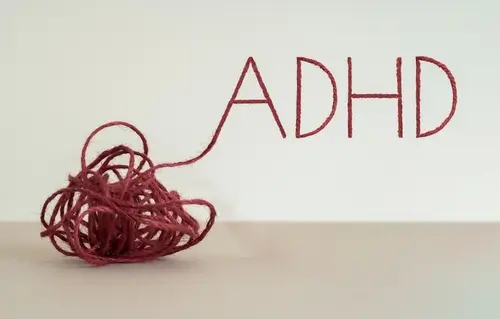If you have ADHD, you might have a hard time staying focused or present, zoning out at random moments of the day. This can impact your ability to finish or focus on tasks, listen to others during conversations, and feel interested in the present. While neurotypical brains can feel sidetracked or distracted, people with ADHD can zone out for hours at a time.
This article explains what it feels like for people with ADHD to zone out, what causes it, how it impacts their lives, and how to manage it with personal tricks and professional treatment.
What Is ADHD Zoning Out?
People with ADHD can find themselves distracted or unfocused on their external surroundings and tasks. Zoning out is usually an involuntary process, but it can be especially difficult for people with ADHD to bring themselves back into the current moment. ADHD (attention-deficit/hyperactivity disorder) affects an individual’s ability to filter through incoming information.
For example, a neurotypical brain may see someone pass by their office window, think about who they just saw, and revert to their task. Someone with ADHD experiences a more intense process. They might see someone pass by their office window, think about who they just saw, think about when was the last time they saw them, what they were wearing, the store they bought that shirt from, the shirt they were wearing, the store they bought it at….and the information train is off the tracks.
Sometimes, it zoning out can feel like daydreaming, with endless thoughts passing through the brain. But it can also feel like your mind has gone completely blank, similar to dissociating.

It’s Okay To Zone Out
Zoning out isn’t a bad thing. It’s okay to think about something else for a moment in the middle of a two-hour project. It helps you take a mental break and stimulate your creativity. But for someone with ADHD, the project can turn into six hours, or they may have never started it.
Read more: ADHD Tools To Resist Substance Abuse
Why Do People With ADHD Zone Out?
People with ADHD can zone out for various reasons, but it’s usually tied to how their brain filters and regulates attention and information. In neurotypical people, zoning out can be caused by sleep deprivation or stress. In all cases, it’s involuntary. As much as you’re trying to pay attention, your brain can switch off without notice. Here’s why people with ADHD zone out more than neurotypical people.
- Attention networks: In people with ADHD, the three networks in the brain that control attention – the dorsal attention network (DAN), the ventral attention network (VAN), and the default mode network (DMN) – may not function as separately as they do in typical brains. This can lead to difficulties in switching between different modes of attention efficiently, unlike in neurotypical brains.
- How they usually work: In a neurotypical brain, these networks interact while maintaining a respectful separation. When one network becomes more active, the others decrease their activity and only interrupt each other when necessary. For example, the ventral attention network (VAN) won’t divert your attention from a task, like reading a book, unless it detects a relevant stimulus.
- How they work with ADHD: However, in ADHD brains, these networks may not be as distinct, which makes it challenging to switch between different modes of attention smoothly. The ADHD brain struggles to deactivate the default mode network (DMN) and fully switch into the dorsal attention network (DAN) or the ventral attention network (VAN).
- Result: Even when someone with ADHD consciously tries to focus on a task, their default mode network (DMN) can remain active at higher levels. This can cause them to slip back into daydreaming or resting mode involuntarily.

How Zoning Out Impacts People With ADHD
Zoning out with ADHD can affect more than just a task’s deadline. Zoning out can also impact:
- Memory: When someone with ADHD zones out, it can be hard to process or retain any information coming in. This includes instructions, details, and even important events. They don’t mean to zone out, but this can cause confusion and lead to mistakes. This makes it hard to listen and understand verbal instruction at school, college, work, or during recreational activities like board games, sports, or competitions. For example, you might receive instructions on creating a spreadsheet but completely forget once you start the task, needing to ask someone else for clarity.
- Conversations: For individuals with ADHD, maintaining focus and attentive listening during conversations can prove incredibly challenging. Sitting still and waiting for their turn to speak becomes difficult when someone is talking to them. As the other person speaks, their mind might instantly drift to a funny or relatable story. However, this can make it hard to follow their conversation and remember how you wanted to respond.
- Safety: Zoning out isn’t usually dangerous, especially if you’re sitting at a desk. But, it can be easy for people with ADHD to space out while driving, walking near the street, or operating tools or machinery. For example, someone with ADHD on a long drive can slowly drift into autopilot, distracted by the radio, or someone talking in the car. If something hazardous is on the road, the seconds
Writer’s note: As someone with ADHD, I’ve zoned out several times while writing this blog. If you have ADHD or aren’t sure why you zone out or struggle with inattention, you’re not alone.

Does Everyone With ADHD Zone Out?
No, not everyone with ADHD experiences intense zoning-out moments. Some individuals have a hard time with hyperactivity rather than inattention. These individuals might find it easy to complete or focus on tasks, but they can quickly jump from one to another and find it hard to organize their tasks, causing them to make mistakes. ADHD affects each individually differently, and as children, individuals can subconsciously adapt to their mental health disorder, managing some symptoms easier than others.
Read more: What Does Cocaine Feel Like With ADHD?
How To Deal With Zoning Out
Even if you don’t have ADHD, these five tips can help you refocus your attention. However, these management tips won’t work the first time, and some may not work at all. It’s all about trying one at a time and seeing if it works. You can always modify any of these to fit your needs since ADHD affects everyone differently. Here are some easy strategies you can start with:
- Make your task more active: Engage more of your senses and muscles when doing a task. For example, when someone is talking, try summarizing what they’re saying in your head or use nonverbal cues like nodding.
- Carry a small journal and take notes: Taking notes helps you stay focused and process information better. You can do this while listening to someone, reading, or even during meetings and calls at work.
- Ask clarifying questions: Instead of constantly asking people to repeat themselves, ask questions that give you more context and details about what they said. This way, you can reorient yourself if you space out again.
- Take breaks: If you’re spacing out for longer periods of time during a project, take a short break. You can try taking a nap, eating a healthy snack, going for a walk, or taking a quick shower. This helps refresh your brain before getting back to the task.
- Be open about spacing out: Inform your friends, family, and coworkers about your tendency to space out due to ADHD. This way, they’ll be more understanding and patient when it happens.
- Talk to a professional: There are professional therapists and mental health treatment centers focused on helping individuals not just manage their symptoms but accept them and utilize them. Some individuals benefit from ADHD medication, but others are comfortable with their symptoms and functionality.
Contact Launch Centers For ADHD Treatment
If you or someone you know is struggling with zoning out or other symptoms of ADHD, contact Launch Centers in Los Angeles, California. Our mental health center has everything an individual with ADHD needs, including medication-assisted treatment and evidence-based therapeutic modalities. ADHD doesn’t affect everyone the same way, and our individualized treatment plans are tailored to each individual’s needs, goals, and schedules. Call today, and one of our admissions agents can help you get started or answer any questions.






